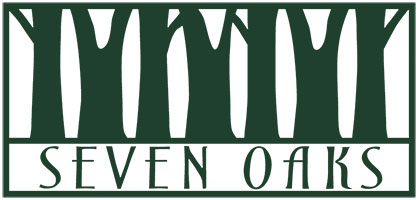Horizon: Atlanta Leaders to Visit ‘Living Lab’ Vancouver For Ideas
BYLINE: MARIA SAPORTA
Staff
DATE: May 7, 2007
PUBLICATION: Atlanta Journal-Constitution, The (GA)
EDITION: Main; The Atlanta Journal-Constitution
SECTION: Metro News
PAGE: B3
About 100 metro Atlanta leaders are traveling to Vancouver, British Columbia, to learn more about one of the most livable cities in the world.
The Vancouver trip is the 11th LINK (leadership, involvement, networking, knowledge) annual visit that metro Atlanta leaders have taken to study comparable cities to adopt good ideas and prevent potential missteps. It also is the first time LINK has been outside the United States, although Vancouver is virtually on the border.
“When you read the various publications regarding good planning, Vancouver regularly is in the top three,” said Sam Olens, chairman of the Cobb County Commission and chairman of the Atlanta Regional Commission (which organizes the LINK trips). “It’s an exceedingly clean city. It’s an exceedingly family-friendly city. And it’s an extremely environmental city.”
The delegation leaves Wednesday morning and returns on Saturday.
Several years ago, Atlanta Mayor Shirley Franklin asked urban experts at the World Bank which one city should the LINK group visit. “They recommended Vancouver,” Franklin said.
Vancouver has a regional population of 2.1 million people, while metro Atlanta is double that. But the city of Vancouver has 578,000 residents compared to about 480,000 residents in the city of Atlanta.
Both regions are facing many of the same issues when it comes to growth. But they have differing approaches on how they are growing.
“The sense of place is huge in Vancouver,” said Tony Landers, ARC’s director of community services and the coordinator of LINK. “We have people on this trip who have made their living promoting sprawl. It’s going to be striking to see the high quality of life in such a dense place.”
The term that Vancouver’s city leaders use to describe their view toward growth is: “eco-density.” The natural boundaries have contributed to the need for Vancouver to grow up rather than out. And the region also has attracted great investment from Hong Kong, which also is a highly dense city.
“I think Vancouver is a living laboratory of smart growth,” Landers said. “But it’s not without its problems.”
Landers said the group will see two adjacent census tracts in Vancouver — one of them is Canada’s wealthiest census tract right up against the poorest. “It’s dramatic,” he said.
Vancouver also has prepared a 100-year plan, which is particularly intriguing for Mayor Franklin. She has been pushing the city of Atlanta as well as the region to look decades in the future to decide what kind of metro area we want to be.
One of the highlights of the Vancouver trip is expected to be a talk from Larry Beasley, the recently retired city planning director, who has an international reputation as one of the world’s top planners.
“One cultural differences between here and Vancouver is that they hold their public officials in high esteem,” Landers said. “Larry Beasley is a planning rock star. He’s very dynamic, and he consults all over the world.”
The LINK group also will study Canada’s health system, the region’s business community and Vancouver’s transportation system.
“Vancouver is a place that deliberately hasn’t built any major roads in the last two decades,” Landers said. “We also have the potential to pick up some ideas on transportation financing. They are going about it in ways that are different than we are, for example, using parking taxes.”
The roles of the various governments also are different.
In Canada, the federal government is “the 800-pound gorilla,” and it has a much greater influence on local decision-making than in the United States, according to Landers.
Although the government structure is different in Canada, both Olens and Franklin believe it will give metro Atlantans a fresh look at the inner workings of the region and perhaps lead to adoption of some of the same ideas.
It is something the Atlanta region has done time and time again when it has gone on the LINK trips. The Peachtree Streetcar idea received much greater momentum when the LINK group went to Portland, Ore. The concept of bus rapid transit became popular here after the group went to San Diego. The idea of a metro mayors association was copied from their experience in Chicago.
In addition to Olens and Franklin, the county leaders going to Vancouver include: Gwinnett Chairman Charles Bannister, Cherokee Chairman Buzz Ahrens Jr., Clayton Chairman Eldrin Bell, Fulton Chairman John Eaves, Henry Chairman Jason Harper, Douglas Chairman Tom Worthan and DeKalb CEO Vernon Jones.
The state leaders include: Rep. Mark Burkhalter (R-Fulton County); Sen. Doug Stoner (D-Smyrna); Steve Stancil, executive director of the Georgia Regional Transportation Authority (as well as his chairman, Sonny Deriso); Rosa Rountree, executive director of the State Road and Tollway Authority; and Bob Dallas, director of the Governor’s Office of Highway Safety.
Among the developers going: David Allman, George Berkow, Kip Berry, Randy Hayes, Tad Leithead, Stephen Macauley, Doug Mitchell, Emory Morsberger, Jerome Russell, Pam Sessions, Bob Voyles and J.T. Williams.
And the nonprofit and civic leaders going include: Joe Bankoff of the Woodruff Arts Center; Bill Bolling of the Atlanta Community Food Bank; Jerry Griffin of the Association County Commissioners of Georgia; Penelope McPhee of the Arthur M. Blank Family Foundation; John O’Callaghan of the Atlanta Neighborhood Development Partnership; Alicia Philipp of the Community Foundation for Greater Atlanta; Karen Webster Parks of the Civic League for the Regional Atlanta; and Jim Stokes of the Georgia Conservancy.
